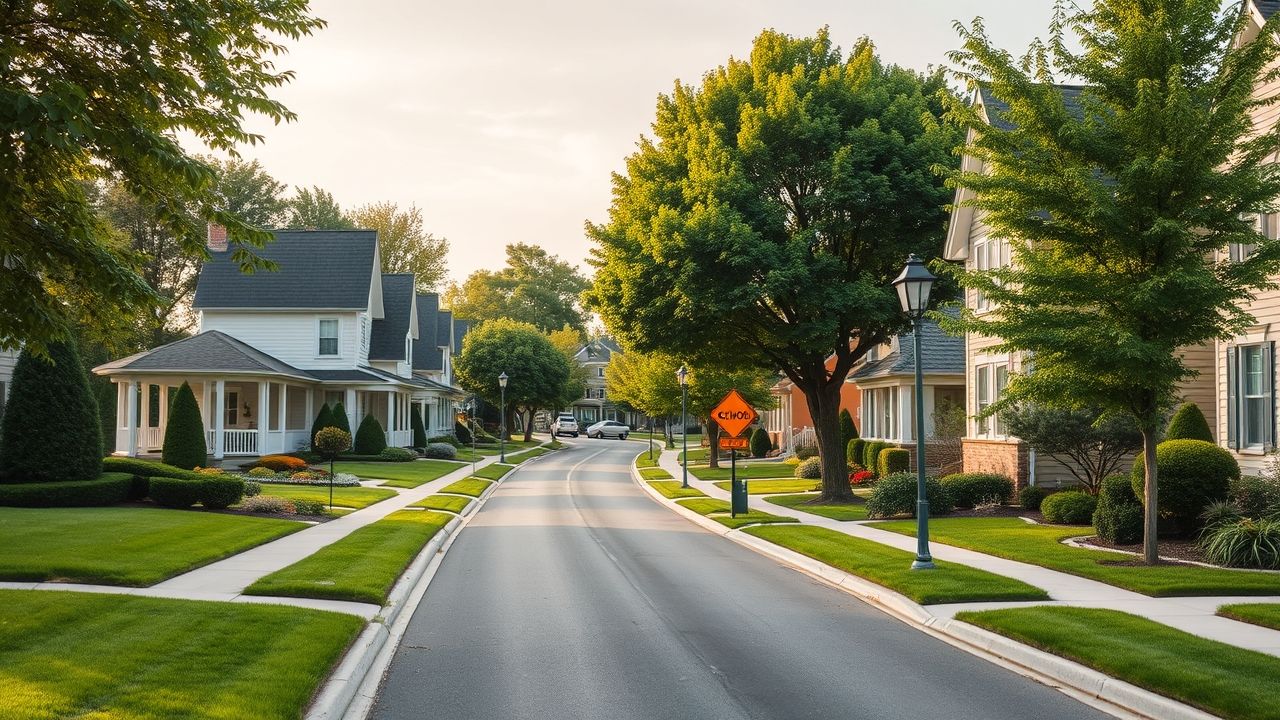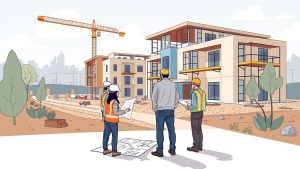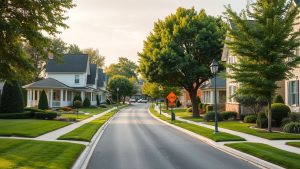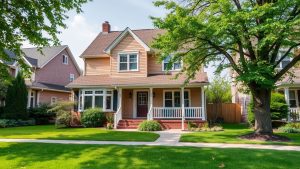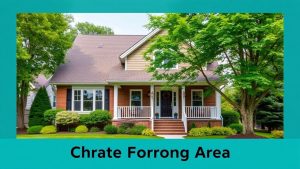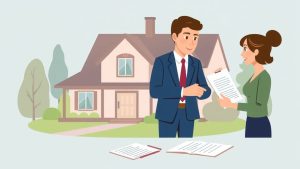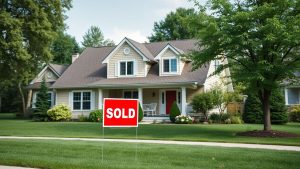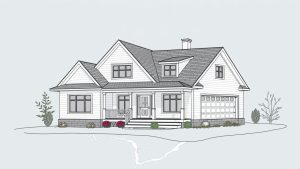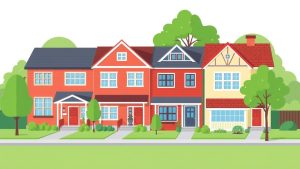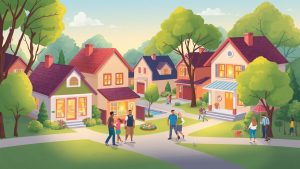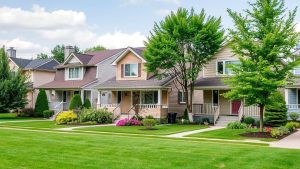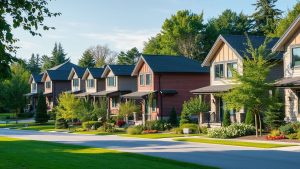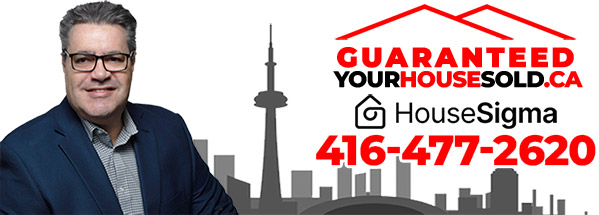Are you wondering if the school down the street really matters when you buy a house?
Maybe you have kids. Maybe you don’t.
But does that school zone actually change how much your house is worth? The answer is a big YES! It can change the price a LOT.
This guide will show you why schools are super important for your house’s value, especially if you’re looking for homes in the Greater Toronto Area (GTA), Milton, Mississauga, Georgetown, or Guelph. We’ll make it easy to understand how good schools can put more money in your pocket later on.
Let’s figure this out together!
Why Do Schools Matter So Much for House Prices?
Okay, picture this. You’re looking for a new house. If you have kids, you want them to go to a great school, right? You want good teachers, safe classrooms, and fun activities. Makes sense!
Lots of families think this way. They really want their kids in top schools. So, they look for houses in areas with those good schools.
What happens when lots of people want houses in the same spot? Yup, the prices go up! It’s like when everyone wants the last cookie – someone might pay extra for it.
But What If I Don’t Have Kids?
This is a great question lots of home buyers ask. Even if you don’t have kids right now, or maybe you won’t have kids at all, the schools near your house still matter.
Think about the future. Someday, you’ll want to sell your house. Who do you think will be looking to buy it? Often, it’s families! And what will those families be looking for? Good schools!
- Easier to Sell: Houses in good school areas usually sell faster. More people want them!
- Holds Value Better: Even if the housing market goes up and down, homes near good schools often keep their value better than homes in areas with not-so-great schools. They are safer bets.
- Good Neighbors: Often, areas with good schools also have parks, safe streets, and people who care about their community. It just makes it a nicer place to live for everyone.
So, even without kids, buying near a good school is like a smart investment for your future. It helps protect your money.
School Ratings and Home Value: How They’re Linked
It’s not just a feeling – numbers show that good schools mean higher house prices.
Think about school report cards. Schools get grades too, based on things like test scores. Studies, like one from a smart group called the National Bureau of Economic Research, found something amazing: for every little bit higher a school’s test scores get, the house prices nearby can go up by about 2%! That might not sound like much, but it adds up fast on a house price.
Another website that knows a lot about houses, Realtor.com, found that homes near the best schools can sell for almost 50% more than the average house price across the country! That’s a HUGE difference.
This shows the clear link: School ratings and home value go hand-in-hand. Better schools often mean bigger price tags for houses. This is a big deal for real estate prices school proximity.
“Good schools act like magnets for families. Where families want to be, housing demand goes up, and so do values. It’s one of the most reliable factors in real estate.” – Local Real Estate Expert
This is true across Ontario, from Mississauga to Milton and beyond. Families are looking for those family-friendly neighborhoods Ontario offers, and schools are top of their list.
What Makes a School “Good” Anyway?
When people talk about “good” schools, what do they mean? It’s not just one thing. Here are some pieces that fit together:
- Test Scores: How well do students do on tests? This is often the first thing people look at. High scores usually mean kids are learning well. Websites like the EQAO (Education Quality and Accountability Office) in Ontario track this.
- Happy Students & Teachers: Are kids excited to go to school? Do teachers like working there? Happy schools are usually better schools. Think about smaller teacher-student ratios (fewer kids per teacher).
- Graduation Rates: Do lots of students finish high school? This shows the school helps kids succeed all the way through.
- Extra Fun Stuff: Does the school have cool things like sports teams, music classes, art clubs, or science groups? These extras make school more fun and help kids learn different skills. These are called extracurricular opportunities.
- School Building: Is the school building clean, safe, and looked after? Does it have things like a good library or computers?
- What Parents Say: Talking to parents who already have kids at the school is a great way to get the real story.
Finding this info can feel tricky, but there are tools to help.

How to Find School Info for Home Buyers GTA
Okay, you know schools matter. Now, how do you find out which ones are good, especially if you’re looking at houses in the GTA, Mississauga, or Georgetown?
Here’s your mission plan for home buying near good schools:
-
Go Online:
- Fraser Institute: This Canadian group ranks schools in Ontario based on academic results. You can search for schools in specific areas. (You can search online for “Fraser Institute Ontario School Rankings”).
- EQAO Website: This Ontario government site shows test results for schools. It gives you real data. (Search for “EQAO Ontario”).
- Local School Board Websites: Every area (like Peel Region for Mississauga, Halton Region for Milton) has its own school board website. These sites list all the schools, their boundaries (which streets go to which school), programs, and contact information. This is super important!
- Google Maps & Street View: Look at the school online. Does it look well-kept? What’s the neighborhood around it like?
-
Check School Boundaries: This is VERY important. Just because a house is near a school doesn’t mean it’s zoned for that school. You need to know the exact boundary lines. School board websites usually have a “school locator” tool where you can type in an address to see which school it belongs to. Don’t guess – check!
-
Talk to People:
- Your Real Estate Agent: A good local agent knows the neighborhoods AND the schools. They hear what buyers are looking for and know the reputation of different schools. Ask them about the best school districts GTA or top schools in Mississauga.
- People in the Neighborhood: If you can, chat with people walking their dogs or playing in the park. Ask them what they think of the local school. You’ll get honest answers!
- Visit (If Possible): Call the school office. Can you arrange a visit? Seeing the school yourself can tell you a lot.
-
Think About Different School Types: Ontario has:
- Public Schools: Open to everyone in the boundary.
- Catholic Schools: Publicly funded, but usually require one parent to be Catholic (check specific board rules).
- French Immersion: Many public boards offer programs where kids learn mostly in French. These can be popular!
- Private Schools: You pay tuition for these. They don’t rely on public funding and have their own rules.
Knowing your options helps you make the best choice when choosing a home near schools.
Impact of Schools on Real Estate Prices in Milton and Guelph
Let’s zoom in a bit. How does this play out in places like Milton or Guelph?
- Milton: Milton has grown super fast! Lots of young families have moved there. Because of this, schools are a HUGE deal. New schools are being built, and areas with established, highly-rated schools are very popular. House prices often reflect this directly. A house zoned for a top-ranked elementary school might sell for significantly more than a similar house a few streets over zoned for a different school. Competition can be fierce for homes in the best school rankings for home buyers spots.
- Guelph: Guelph has a mix of older neighborhoods and newer areas. It also has the University of Guelph, making education important to the city. Families moving to Guelph often look closely at school scores and reputations. Areas known for strong schools tend to have stable or rising home values. Like Milton, the impact of schools on real estate prices is clear here.
This pattern repeats across many Active Markets in Ontario. Families want the best start for their kids, pushing up demand and prices in desirable school zones.
Are There Any Downsides to Buying Near Top Schools?
Okay, it sounds great, but is there a catch? Yes, sometimes there are things to think about:
- Higher House Prices: As we’ve seen, houses in top school zones usually cost more. You need to make sure you can comfortably afford it.
- Higher Property Taxes: Guess who pays for those great schools, parks, and community centers? You do, through property taxes! Areas with top schools often have higher property taxes because they need more money to keep the schools running well. Make sure you budget for this extra cost.
- Lots of Competition: Remember the cookie example? When a house goes up for sale in a really great school district, lots of buyers might want it. This can lead to “bidding wars,” where people offer more than the asking price to try and win the house. It can be stressful and push prices even higher.
- Maybe It’s Too Kid-Focused? If you don’t have kids, do you want to live where everything seems to revolve around school schedules and kid activities? For some, it’s great; for others, maybe not their first choice.
It’s about balancing what’s important to you.
Tips for Smart Home Buyers Thinking About Schools
So, you’re ready to buy a home in the GTA or surrounding areas like Georgetown. How do you use this school info smartly?
- Do Your Homework (School Homework!): Don’t just look at one ranking online. Check multiple sources (Fraser Institute, EQAO, school board sites). Understand why a school is ranked highly. Is it test scores? Special programs? Talk to people.
- Think Long Term: Where do you see yourself in 5 or 10 years? Even if you don’t have kids now, will you later? Will you want to sell? Buying in a good school district is often a safer bet for future home value.
- Know the Exact Boundaries: We said it before, but it’s worth repeating. Confirm the school zone for any house you’re serious about. Don’t trust the listing sheet alone – verify with the school board’s locator tool. Boundaries can sometimes change!
- Balance Your Budget: Don’t spend so much on a house just for the school that you can’t afford anything else! Think about your whole life – commuting, hobbies, saving money. Find a balance that works for your family and your wallet.
- Consider the Whole Neighborhood: A good school is great, but what about the rest of the area? Are there parks? Is it safe? Is it easy to get to shops or work? Look at the big picture of family-friendly neighborhoods Ontario.
- Work With a Pro: A local real estate agent who really knows areas like Mississauga, Milton, and the GTA can be your best friend. They understand the impact of schools on real estate prices and can guide you to the best areas for families GTA. They know the market and can help you make a smart offer.
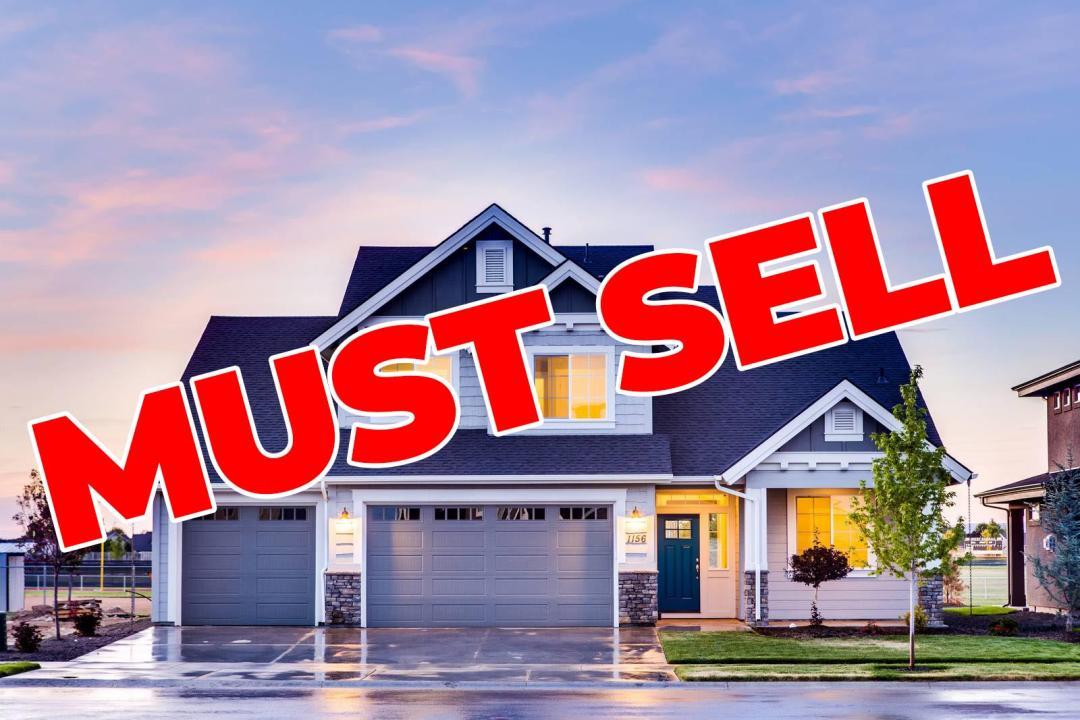
Good Schools = Good Neighborhoods?
Often, yes! Areas with highly-rated schools tend to have other good things going for them too:
- Community Pride: People care about their neighborhood and keep it nice.
- Lower Crime: Studies sometimes show a link between good schools and safer streets.
- Parks and Green Space: Often planned near schools.
- Stable Home Values: As mentioned, these areas often hold value better.
It creates a positive cycle: good schools attract families who care, who help keep the neighborhood nice, which keeps the schools desirable. This makes choosing a home near schools about more than just education; it’s about the overall quality of life.
Frequently Asked Questions (FAQ)
Q1: How much more expensive are homes near top-rated schools in the GTA?
A: It varies a lot! But as studies show, it can be significant – sometimes 10%, 20%, or even more compared to similar homes in less popular school zones. In very high-demand areas of the GTA or Mississauga, the difference can be even bigger. Some reports suggest premiums reaching towards that 49% mark in certain hot spots.
Q2: Do school rankings change often?
A: School performance can change year to year, but rankings from places like the Fraser Institute often show trends over several years. A school that’s consistently ranked well is usually a safer bet than one that bounces up and down a lot. Keep an eye on recent reports (like 2024/2025 data when available).
Q3: What if I buy a house and the school boundaries change?
A: This can happen, especially in growing areas like Milton. School boards review boundaries periodically. It’s a risk, though usually, they try to minimize disruption. Checking the school board’s long-term plans can sometimes give clues, but there’s no guarantee.
Q4: Do Catholic school ratings affect home value as much as public schools?
A: Yes! For many home buyers, especially Catholic families, the quality of the local Catholic school is just as important. High-performing Catholic schools in areas like Mississauga or the GTA definitely contribute positively to home value in their zones.
Q5: Does the distance within the school zone matter? Like, being able to walk to school?
A: Sometimes! While being in the zone is the main driver for value related to school quality, being close enough to walk can be an extra bonus for some families. It adds convenience and can make a home slightly more desirable, potentially nudging the real estate prices school proximity factor a bit higher.
Q6: Where can I find reliable school rankings for Ontario for 2024 or 2025?
A: Keep an eye on the Fraser Institute’s annual reports and the EQAO website. These are updated regularly. Search online for “Fraser Institute Ontario School Report Card 2024” (or 2025 when it’s released) and “EQAO school results Ontario”.
Q7: Are online ratings (like Google reviews) for schools useful?
A: They can give you some parent opinions, but take them with a grain of salt. Official sources like EQAO and Fraser Institute use more objective data. Talking to people in the community often gives better insight than online reviews alone.
Your Smart Move a Home Buyer
Thinking about schools is a really smart step when you’re buying a house. It’s not just about classrooms and teachers; it’s about protecting your investment and choosing a great place to live.
Good schools make neighborhoods more desirable. More desirable neighborhoods mean houses often sell faster and for more money. This is true whether you have kids filling backpacks or just want a solid investment for the future.
Remember to look beyond just one ranking. Check official data, talk to locals, and understand the school boundaries. Consider the higher costs like taxes and purchase price.
Finding the right home in the right neighborhood, especially in competitive markets like the GTA, Milton, Mississauga, Georgetown, or Guelph, can feel overwhelming. You need to balance location, price, condition, and schools.
Why not get help from someone who knows the local market inside and out? An expert can help you understand the impact of schools on real estate prices in specific neighborhoods and find homes that fit your needs and your budget.
Ready to find your perfect home in a great area? We can help you navigate the market, understand school zones, and make a smart purchase decision. Plus, we have resources that can make buying easier and potentially save you thousands.
Download our Free Home Buyer’s Guide today! It’s packed with tips for navigating the market in the GTA and surrounding areas.
Even better: Find out how you can save $10,000 to $50,000 Guaranteed when you buy your home with us! We have the strategies and local knowledge to help you win.
Click here to get your Free Guide and learn about Guaranteed Savings: https://www.loveyourhomeguaranteed.ca/
Don’t leave money on the table or risk buying in the wrong spot. Let’s work together to find a home you love in a neighborhood that supports your investment.

